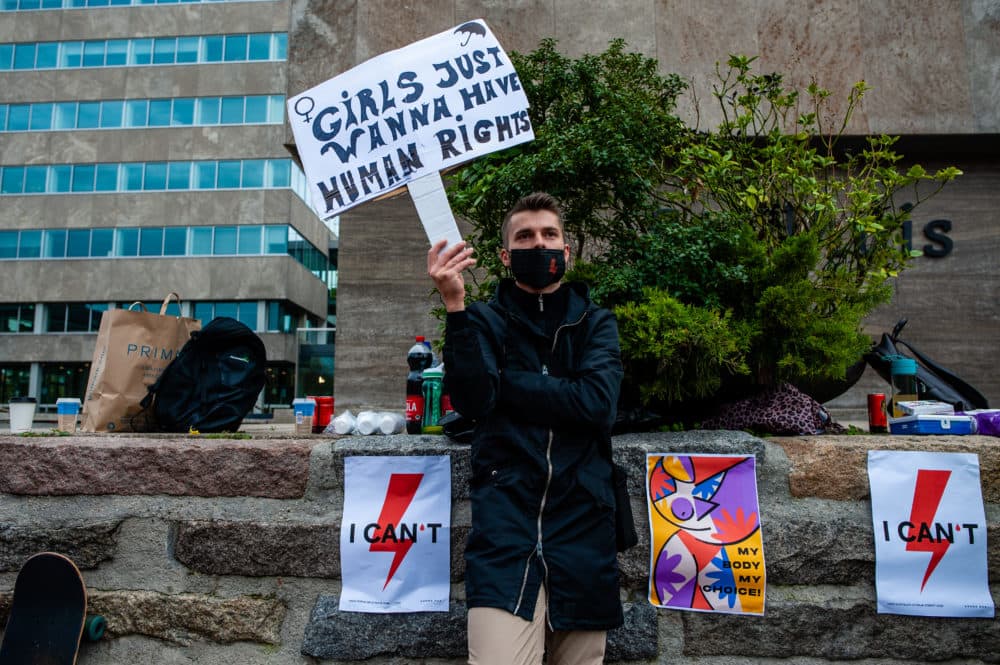Advertisement
commentary
Men like me benefit from safe abortion access

This May, I’ll graduate from law school and start my career as a public interest lawyer — a dream come true. At 28, after 10 years of college and multiple graduate schools, in many ways, it feels like my life is just about to begin.
It would be a terrible time to have a baby.
Don’t get me wrong — I’ve always wanted to have kids. I love the relationship I have with my parents and can't imagine not getting to experience fatherhood. I think I’d be good at it. That said, I’m not in a relationship. I haven’t built a nest egg. And, frankly, after two years of a global pandemic, I want to eke out and enjoy every last minute of my 20s. In too many ways, I'm unsettled.
We often talk about the ways access to birth control and safe abortion empowers women. And it does: I believe that access to safe abortion is a basic human right. On a human and policy level, it’s infuriating to watch a partisan Supreme Court erode and threaten to eliminate that right. Women’s bodily autonomy should not be up for debate.
It is the duty of both sexual partners to be proactive about safe sex, but in reality, too often this burden falls disproportionately on women.
But men like me have also long been the direct beneficiaries of safe abortion access. Giving women the choice not to carry unwanted pregnancies often means we, too, can delay parenthood until we are ready.
Since I've spent 10 of the past 11 years as a student, most of the women I've had sex with were also students, also progressive, and also not at a point in their lives where they were looking or ready to have children. I try to share responsibility for birth control and if a woman tells me she's on it, I also trust that. If she still got pregnant, however, though entirely her decision, I assume we would both want the same thing: an abortion. In longer-term relationships, we've had explicit discussions about this.
It is the duty of both sexual partners to be proactive about safe sex, but in reality, too often this burden falls disproportionately on women. Admittedly, I’ve often relied on my female sexual partners to protect me from unwanted pregnancy. During my MBA, I recall panicking in an Uber to the train station after hanging out with a medical student I had met on Tinder and had seen a few times. She had a latex allergy. We didn’t use our best judgment. Then I got her text. She had decided to take plan B as an extra precaution. I was relieved.
To my knowledge, I’ve never gotten anyone pregnant. On an academic level, I’ve followed the entrenched, decades-long, conservative effort to undermine access to safe abortions. Yet until this moment, I've viewed accessible abortion as something my partners and I could reasonably rely on as a last resort. That security has informed my approach to sexual exploration and relationships. From this vantage point, access to abortion is not just a women’s issue, but a public health issue that directly affects anyone who engages in sexual relationships that might lead to pregnancy.
... I’m scared of what eliminating access to abortion would mean for my own life.
Of course, these are merely my preferences. All kinds of people of all backgrounds make great parents — even when they weren't planning or prepared for children. Still, I feel I owe it to myself, my future partner and my future children to establish a foundation that allows me to be the best dad I can possibly be. As such, the timing and circumstances matter.
I admit I’m scared of what eliminating access to abortion would mean for my own life.
What if I got a woman pregnant? What if she didn’t want to continue the pregnancy, but could not get an abortion? Would we try to stay together, even if it wasn't a fit? What kind of custody or visitation rights would I get if we weren’t together? How would I provide for the child? Would adoption really be a consideration, as Justice Amy Coney Barrett recently glibly suggested? If so, would the child face an abusive welfare system? The questions and worries abound.
Too often, male engagement with the pro-choice movement has been articulated solely through the lens of female empowerment. (Or with some trite narrative of fathers talking about their daughters, or brothers, their sisters.) Of course, men should serve as allies in defending women’s bodily autonomy. Again, control over one’s person is a basic human right.
My goal is not to equate — or even compare — men’s relationship with safe abortion policy to that of women. However, in viewing women as the only beneficiaries of safe abortion access, many men conveniently side-step defending a policy they have long taken for granted. At the least, men should be honest about the ways we also benefit.
